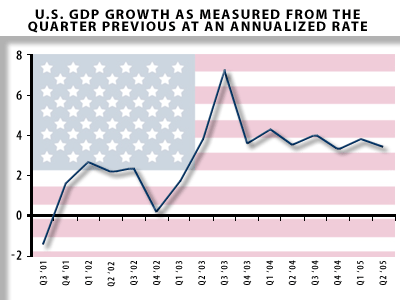Iraq may have lost the power to shock. The Iraq invasion has been pursued by a strange sort of idealist—George W. Bush and his neocon followers, whose style of rule owes more to Trotskyism and even Communism than any administration of the last century.
Corruption scandals are exploding inside the administration and in the Republican Congress, and almost unimaginable waste and arrogance occurred under Paul Bremer and the CPA in Iraq.
[REVISED 11/29/2006]
Many Americans have lost perspective about the scale of killing in Iraq. Consider this recent report from Juan Cole:
“Reuters reports 77 killed in Iraq‘s civil war on Thursday. That total includes 38 bodies found in the streets of Baghdad. Also included are 3 GIs k.i.a.
Al-Hayat reports that in Najaf on Weds.-Thurs. night, 4 members of the Sadr Movement loyal to Muqtada al-Sadr were arrested, including one of his aides. Muqtada al-Sadr’s office said that the arrests were based on a misunderstanding and called for calm. The elected head of the Najaf provincial governing council complained that the arrests had been made without any prior contact with the council.
Patrick Cockburn argues that the Republic of Fear is back in Iraq, with widespread torture by death squads of their victims. Some of his interviewees in Baghdad are saying that the situation is worse than under Saddam.
Guerrillas are kidnapping drivers, then booby-trapping their cars and letting them go, then following them until they pass a checkpoint, at which point they hit the detonator button and . . . kablooie. I don’t think this can work for very long; the victims will find out about their predecessors and ditch the car.
The Italians have handed over military duties to the Iraqi army in Dhi Qar province, with its capital at Nasiriyah. The Italians will continue to contribute economic development assistance, but their military mission is over.”
People who have long been apologists for Bush and his war are still at it, hardly comprehending not only the shame of support for an unjust war but also the impossibility of “staying the course” and having any hope of calling that “victory.”
Leon Wieseltier wrote in the New Republic only last April:
“The best that can be said of George W. Bush is that he is a small man doing a big thing. And of the war, that good may still come of it. I told you, I have nothing useful to say.”
No, certainly not as useful as admitting the foolishness of support for any war in Iraq, not just whatever war in whatever place at whatever time. Joe Lieberman continues his moronic support for the war, while his anti-war opponent, Ned Lamont, has stirred real debate and already defeated Lieberman once. From the New York Times:
“Mr. Lieberman, who lost the Democratic primary to Mr. Lamont last month and is now running as an independent on his own line, has not backed off his support for the war and has emphasized the consequences if the United States pulls out too soon. He has repeatedly said that he does not favor an indefinite commitment in Iraq, but he has not offered a concrete alternative.
During his national security address last week, he did not mention Iraq, though he said he planned to do so in a separate speech this month.”
To counter the very logical arguments for withdrawal, Bill Kristol of the Weekly Standard argues to just send even more troops into Iraq:
“The truth is there are not enough ground forces in Iraq, and military officers are finally saying so in public.
The administration could respond to this obvious fact by sending more troops. Rather than do that, some military and civilian leaders are spinning: There are no more troops to send, they say.”
Helana Cobban, though, makes a very strong case for America withdrawing from Iraq:
“But what we do know, based on the trend-line from 2003, 2004, 2005, and 2006 is that that the trend there has been that for every year the US troops stay in Iraq, the situation for the Iraqis becomes worse.– and we have no reason whatsoever at this point to expect any change in that trend. Plus, at some point, the US troops are going to have to withdraw, anyway.”
[photo: Getty]












